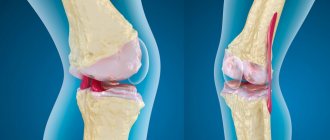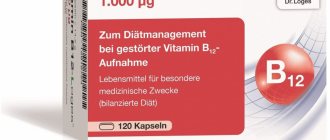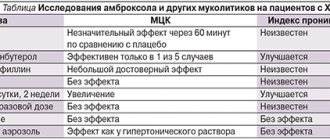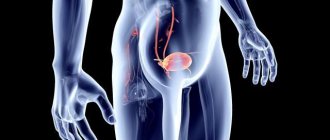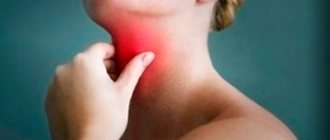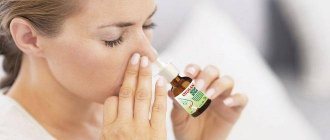Depression is one of the most common diseases. In terms of prevalence, it is second only to cardiovascular diseases. And of all those suffering from depression, no more than 20% seek qualified help.
In this article we will tell you about all the drugs used to treat depression.
All medications with antidepressant effects can be divided into several groups:
- Antidepressants.
- Normotimic drugs.
- Neuroleptics.
- Tranquilizers.
- Nootropics and metabolic agents.
- Herbal remedies.
- Amino acids.
- Psychostimulants.
Normotimic drugs
Medicines in this group have an antidepressant effect only in cases where the depressive state is caused by chronic affective diseases, such as bipolar affective disorder (BD, manic-depressive psychosis), cyclothymia, dysthymia, schizoaffective disorder. Most commonly used medications:
- Carbamazepine (finlepsin)
- Depakine chrono
- Lamotrigine (Lamictal)
- Lithium carbonate
Tryptophan
Tryptophan is a homeopathic antidepressant that helps fight irritability, apathy and anxiety. The active ingredients of the drug are vitamins B5 and B6, as well as the amino acid L-tryptophan. L-tryptophan normalizes the functioning of the nervous system, improves sleep quality (by regulating the production of melatonin). Tryptophan has a complex effect on the body, so it helps to cope with depression more easily. After taking this antidepressant, negative thoughts completely go away, the person becomes calmer, irritability decreases and anxiety disappears.
Calm Formula Tryptophan
Evalar, Russia
A drug for the treatment of diseases of the nervous system.
from 190
580
- Like
- Write a review
Let us emphasize once again that over-the-counter antidepressants are not very effective, so they should be taken only at the initial stage of the development of depression, so as not to aggravate the situation and prevent complications of the condition. Depression is not a serious problem that requires immediate treatment. If you notice that you have lost interest in your usual activities, you have sleep disturbances, you begin to cry often, or obsessive thoughts appear - consult a doctor immediately.
Neuroleptics
Despite the fact that most antipsychotic drugs depress the nervous system, among them there are drugs with antidepressant effects:
- Flupenthixol (fluanxol).
It has an antidepressant effect only when administered in small doses (less than 2 mg per day).
- Aripiprazole.
Effective for depression in bipolar affective disorder and schizitypal disorders.
- Levomepromazine (tizercin).
Prescribed for endogenous depression accompanied by insomnia.
Afobazole
The advisability of taking and dosage of Afobazole is determined solely by the doctor. This is one of the most famous and accessible antidepressants in our country with a calming effect on the nervous system. The active substance of the drug is fabomotizole. You can buy Afobazol in almost every pharmacy, which is very convenient. At the same time, there is a wide range of antidepressant packages: from 10 to 120 tablets per pack. The main advantage of Afobazole is that it has virtually no side effects. And given that this medicine for depression is relatively mild in its effect, it can be taken by people of any age (except for children under 18 years of age). "Afobazole" also copes well with anxiety and irritability.
Afobazole
OJSC Pharmstandard-Leksredstva, Russia
Afobazole is used in adults for anxiety conditions: generalized anxiety disorders, neurasthenia, adaptation disorders.
The drug is also prescribed for somatic diseases: bronchial asthma, irritable bowel syndrome, systemic lupus erythematosus, hypertension, coronary heart disease, arrhythmias. from 204
2051
- Like
- Write a review
Tranquilizers
- Bromodihydrochlorophenylbenzodiazepine (phenazepam).
The drug of choice for neurotic conditions with depression and post-stress conditions. That is, in cases where short-term treatment is required.
- Clonazepam.
Strong anti-anxiety and sedative effect. When taken for a long time it causes dependence.
- Alprazolam.
Prescribed for anxiety and depression. Recommended for short courses (no more than 10 days) due to the risk of developing addiction and dependence.
Antidepressants
The most important role in the process of drug treatment of depression is played by antidepressants - drugs that systemically improve the patient’s condition, relieving symptoms of depression: emotional disorders, motor and cognitive disorders (memory, attention, thinking), as well as somatic and autonomic manifestations of depression.
Antidepressants can also be effective in the treatment of anxiety, eating disorders, obsessive disorders, vegetative crises, and in eliminating pain of various origins, for example, rheumatism, since antidepressants usually increase the threshold of pain sensitivity.
| Find out more: Types of depression |
The choice of antidepressant for the treatment of depression is primarily determined by the clinical picture of the disease, although it should be kept in mind that those antidepressants that have been effective in the past or have successfully helped family members of the patient are likely to be most useful. Often, selecting an antidepressant that is adequate to the patient’s condition can take quite a long time and on average takes two to three weeks; if the dosage is adjusted, this period can increase to six to eight weeks. Patience is required from both the doctor and the patient, both in terms of the timing of the expected effect and reasonable tactics in case of side effects. Usually the latter occur in the first days of therapy, and their severity can be reduced by changing the dose of the drug or prescribing correctors.
Basic criteria for choosing an antidepressant:
- Clinical picture of depression based on the leading modality of affect
- Effectiveness of an antidepressant in relieving past episodes of depression
- The effectiveness of an antidepressant in relieving depression in close relatives of the patient
- Minimal side effects, tolerance to specific side effects
- No somatic contraindications
- Results of hormonal, neurophysiological, pathopsychological and neuropsychological studies
- Economic feasibility
- Balanced effects on the serotonergic and noradrenergic neurotransmitter systems
- Patient's age
- No negative interactions with other medications used to treat the patient
In practice, the main difficulties in using antidepressants are that their dose is not insufficient in patients with severe depression and not too high in patients with questionable and mild depression (Bochner F., et al., 2000).
The effect of an antidepressant usually appears 2 weeks after its administration, but a more pronounced therapeutic effect may require 6 weeks or more.
In more than a third of patients suffering from depression, the main reason for stopping taking antidepressants and, therefore, an important factor contributing to the formation of stable chronic depression are side effects that develop during the first stage of taking antidepressants. Among the side effects that are the most common reasons for stopping therapy are usually: constant feeling of nausea, weight gain, palpitations, drowsiness or insomnia, sexual disorders, weakness, headache. Often, a person suffering from depression agrees to treatment only with an antidepressant that has a minimum number of side effects. Such tactics for treating depression are usually ineffective.
The main reasons for stopping taking an antidepressant are:
- Side effects of therapy, especially gastrointestinal (nausea, vomiting, flatulence, etc.), cardiological (palpitations, arrhythmias, orthostatic hypotension, etc.), neurological (headache, tremor, sweating, etc.) endocrinological (weight gain, changes in the menstrual cycle etc.), manifestations of sexual dysfunction.
- Decrease in the patient’s quality of life due to taking an antidepressant (the need for long-term use of the drug, its high cost, refusal to drink alcohol, etc.).
- Lack of rapid therapeutic effect of the drug, its inadequate dosage.
- Concerns regarding the development of dependence with long-term use of the drug.
- Negative interaction with other medications (tranquilizers, antipsychotics, cardiovascular drugs, etc.).
- Temporary improvement in the patient's condition.
- There is no information about the required duration of antidepressant therapy, including the stage of long-term maintenance therapy and therapy aimed at preventing relapse of depression.
- Negative suggestibility of the patient regarding the occurrence of possible side effects of the drug (annotations on the drugs, opinions of other patients, close relatives, etc.).
- Belief in one's own strength to combat depression, psychologization of depression, orthodox religiosity, or belief in the effectiveness of psychotherapy.
- Adherence to alternative methods of therapy (non-traditional therapy).
In cases of a negative result, the doctor may increase the dose of the drug, and it should be remembered that the most common mistakes in the treatment of depression are treatment with low doses of an antidepressant and its rapid discontinuation after the patient’s condition improves.
For treatment-resistant depression, a psychiatrist may replace one antidepressant with another, use a combination of them, intensify psychotherapeutic intervention, or use another biological treatment method, such as electroconvulsive therapy. In the case of particularly resistant conditions, clarification of the diagnosis and active treatment of concomitant diseases are required: cardiovascular, gastroenterological, endocrine, etc. Particular caution during antidepressant therapy should be exercised in the presence of pregnancy, liver disease, kidney disease, or indications of cardiovascular disorders. It is important to emphasize that antidepressants are not always combined with the medications that are used in the treatment of the above diseases. Quite common in depression is the tendency to haphazardly take various drugs, especially painkillers and sleeping pills; tranquilizers that relieve panic attacks. All these medications may not be combined with antidepressants, cause significant side effects, distort the effect of the drugs or neutralize it completely.
There have been cases of incompatibility of antidepressants with a number of nutritional supplements and medicinal herbs. Alcohol, when combined with antidepressants, on the one hand causes a feeling of weakness, on the other hand, reduces the effectiveness of the antidepressant, however, the rare intake of small amounts of alcoholic beverages is quite acceptable and safe.
The reason for the resistance of depression to therapy in 20-30% of cases is the patient’s hidden resistance to the therapy process: a conditional “benefit from the disease.” The reason for the persistence of depression can also be: the cohesion of the symptoms of the disease with the patient’s personality, the presence of concomitant somatic diseases, fear of psychotropic drugs, categorical refusal to take them (religious views, peculiar ideas about a healthy lifestyle, imaginary opinion about the possibility of developing dependence due to long-term use of antidepressants) attempts independently reduce or increase the dose of antidepressants, non-compliance with the treatment regimen regarding the time of its administration or duration, independent discontinuation of the drug after a temporary improvement in the condition. Finally, due to the severity of his condition, the appearance of absent-mindedness or despair, the patient may forget about taking the medication and lose faith in its effectiveness.
Patients may have a negative attitude towards treatment with psychotropic drugs and antidepressants, in particular, due to those false myths that are widespread in society. These myths include:
- the belief that you will have to take antidepressants for life;
- recognition of weakness due to the inability to independently cope with the manifestations of depression;
- an unfounded belief that these drugs cause addiction, negatively affect a person’s thinking and memory, change his personality and limit creative activity.
The doctor needs to explain to the patient that for many diseases there is a need for long-term medication, that antidepressants cannot change a person’s character, do not cause drug addiction, do not negatively affect his mental abilities, but, on the contrary, contribute to the restoration of mental health. Before starting antidepressant therapy, it is necessary to identify the diseases that the patient suffers from, since the use of many drugs used to treat these diseases may be incompatible with the effects of any antidepressants.
| Find out more: Help from a psychotherapist |
Typically, a patient with depression is interested in questions regarding the use of antidepressants: the name of the drug, its cost, side effects and complications, including possible allergic reactions, contraindications, the required dose, the mechanism of action of the antidepressant, the exact time of taking the medication, dietary features during treatment, the possibility of drinking alcohol during antidepressant therapy. The patient is also interested in the possibility of combining an antidepressant with other medications, especially hypnotics and painkillers, tactics in case of temporary cessation of medication, the ability to drive vehicles and perform certain types of work, duration of medication, methods for determining its concentration in the blood, the likelihood of a positive effect and start time the effects of the drug, the first signs of improvement and the time of final recovery from depression. There is no doubt that correct answers to these questions are only possible if the doctor is sufficiently qualified and has experience in treating depression.
To exclude a recurrence of depression, it is necessary that the duration of taking an antidepressant is about nine months for the initial episode of depression, and almost two years for the second episode. It is almost impossible to do without prescribing antidepressants if the patient has a combination of depression with hallucinations and delusions.
Modern antidepressants, as a rule, are classified according to their chemical structure (Table 2) and mechanism of action (Table 3) (Kharkevich M.Yu., 1996; Mashkovsky M.D., 1997; Puchinsky S., 2000).
Table Classification of antidepressants by chemical structure
| Chemical group | Name |
| Tricyclic | Amitriptyline (tryptisol, amitriptyline), imipramine (melipramine), clomipramine (anafranil) |
| Atypical tricyclic derivatives | Tianeptine (Coaxil) |
| Tetracyclic | Mianserin (Lerivon), Mirtazapine (Remiron), Maprotiline (Ludiomil), Pirlindole (Pyrazidol) |
| Bicyclic | Sertraline (Zoloft), paroxetine (Paxil), trazodone (Trittico), citalopram (Cipramil) |
| Monocyclic | Fluoxetine (Prozac), fluvoxamine (Fevarin, Fluvox), venlafaxine (Effexor), milnacipran (Ixel) |
| Adenosyl methionine derivatives | 5-adenosylmethionine (heptral) |
| Benzamides derivatives | Moclobemide (Aurorix) |
| Carbohydrazine derivatives | Isocarboxazid (marplane) |
| Cyclopropylamine derivatives | Tranylcypromine (parnate) |
| Hydrazine derivatives | Phenylzine (nardil), nialamide (niamid), iproniazid (marsilide) |
Table Classification of antidepressants by mechanism of action
| Mechanism of action of antidepressants | Name |
| Selective serotonin reuptake inhibitors (SSRIs) | Fluosetine (Prozac, Portal, Profluzac), sertraline (Zoloft, Stimuloton), paroxetine (Paxil, Rexetine), fluvoxamine (Fevarin), citalopram (Cipramil)* |
| Monoamine oxidase inhibitors (MAO) | Nialamid (nuredal) |
| Reversible monoamine oxidase inhibitors type A (MAOI-A) | Pyrazidol, moclobemide (Aurorix) |
| Selective norepinephrine reuptake blockers (SNRBs) | Mianserin (lerivon), maprotiline (ludiomil) |
| Selective serotonin and norepinephrine reuptake inhibitors (SSRIs) | Venlafaxine (Effexor), milnacipran (Ixel) |
| Noradrenergic and serotonergic antidepressant (NSSA) | Mirtazapine (Remiron) |
| Selective serotonin reuptake stimulator (SSRS) | Tianeptine (Coaxil) |
| Non-selective norepinephrine and serotonin inhibitors | Amitriptyline, imipramine (melipramine), clomipramine (anafranil), doxepin (sinequan), deipramine (petilil) |
Based on the chemical structure, a large number of groups of drugs are distinguished:
- tricyclic antidepressants (amitriptyline, imipramine, clomipramine),
- atypical tricyclic derivatives (tianeptine),
- tetracyclic drugs (mianserin, mirtazepine, maprotiline, pirlindole),
- bicyclics (sertraline, paroxetine, trazadone, citalopram),
- monocyclic (fluoxetine, fluvoxamine, venlafaxine, milnacipran),
- adenosyl-methionine derivatives (5 - adenosyl - methionine),
- benzamide derivatives (moclobemide),
- carbohydrazine derivatives (isocarbohydrazide),
- cyclopropylamine derivatives (tranylcypromine),
- hydrazine derivatives (phenylzine, nialamide, iproniazid).
The pharmacological action of antidepressants is due to the following mechanisms:
- delayed recovery of norepinephrine, serotonin and dopamine;
- sodium antagonistic effects;
- blockade of muscarinogenic acetylcholine receptors;
- block of histamine (H1) receptors, blockade of alpha-1 receptors, blockade of serotonin-2 (5-HT2) receptors and blockade of dopamine dopamine D2 receptors (Kasper S., Moller H., Muller-Spahn F., 1997).
- Antidepressants can mediate those intracellular signaling mechanisms that control neurotrophic processes, which ensures the functional viability of the neuronal systems of the brain.
Based on the mechanism of action of antidepressants, the following groups are distinguished:
- selective serotonin reuptake inhibitors (fluoxetine, sertraline, paroxetine, fluvoxamine, citalopram),
- monoamine oxidase inhibitors (nialamide),
- reversible inhibitors of monoamine oxidase type A (pirazidol, moclobemide),
- selective norepinephrine reuptake blockers (mianserin, maprotiline),
- selective serotonin and norepinephrine reuptake inhibitors (venlafaxine, milnacipran),
- noradrenergic and serotonergic antidepressant (mirtazapine),
- selective serotonin reuptake stimulator (tianeptine).
Currently, there are drugs that selectively affect the metabolism of the precursor of norepinephrine - dopamine (bupropion).
The pharmacological properties of antidepressants have different effects on the clinical manifestations of depression. Blockade of norepinephrine reuptake by nerve endings leads to a reduction in depressive symptoms (psychomotor retardation, low mood), but at the same time causes a number of side effects (tremor; tachycardia; sexual dysfunction in men; weakening of the effect of a number of drugs that lower blood pressure). Blockade of serotonin reuptake leads to a weakening of other manifestations of depression (anhedonia, circadian manifestations of depression, anxiety). Blockade of dopamine reuptake increases psychomotor activity and has an antiparkinsonian effect, but at the same time can increase the manifestations of psychosis. Blockade of histamine receptors - enhances the effect of alcohol, barbiturates, neuroleptics, tranquilizers, leading to drowsiness, weight gain and hypotension. Blockade of muscarinic receptors (anticholinergic effect) contributes to the occurrence of such side effects as: blurred vision, dry mouth, tachycardia, constipation, urinary retention, memory impairment. Blockade of some adrenergic receptors leads to increased antihypertensive effects of adrenergic blockers, orthostatic hypotension, dizziness, and reflex tachycardia. Inhibition of monoamine oxidase type A (deamination of serotonin, norepinephrine, dopamine) has a stimulating effect (psychomotor activation, weakening of depression), and anxiety, insomnia, headache, neurotoxic disorders, the effect of sympathomimetic amines (adrenaline) may increase, and tyramine (“cheese”) symptoms may occur. ") reactions. Inhibition of monoamine oxidase type B (deamination of phenylethylamine, benzylamine and dopamine) causes hemodynamic disorders, impaired liver function, antiparkinsonian and antihypertensive effects.
Antidepressants are heterogeneous in terms of their effect on various manifestations of depression, in particular, sadness, apathy, anxiety and motor agitation. The nature of the effect on these components of depression underlies the clinical classification of antidepressants (Roose S., et.al. 1994).
We can highlight:
- antidepressants with a weak effect, relieving anxiety and a moderate effect on psychomotor agitation - amitriptyline, imipramine, clomipramine, moclobemide;
- antidepressants with a pronounced anxiolytic and sedative effect without a noticeable effect on psychomotor agitation - doxepin (Sinequan), trimipramine - (Surmontil), and among relatively new drugs - fluvoxamine and paroxetine;
- antidepressants without a pronounced sedative and anti-anxiety effect, but with a disinhibiting effect on reduced psychomotor activity - desipramine (Pertofran), nortriptyline (Pamelor), protriptyline.
In clinical practice, the basis for choosing an antidepressant is the difference in the clinical picture of depression, in the structure of its syndromes: for example, motor and intellectual retardation is better served by the action of melipramine, and anxiety by the sedative effect of amitriptyline (Nuller Yu.L., Mikhalenko I.N., 1973 ; Avrutsky G.Ya., Sinitsky V.I., 1986; Neduva A.A., 1988,).
The specific effect of some antidepressants is primarily associated with improving mood and sedation (thymoleptics), others with a stimulating, motor-activating effect (thimeretics), and others with a noticeably mood-enhancing effect (thymoanaleptics). Antidepressants and stimulants include melipramine, petilin, pyrazidone, cefedrine, nialamide, transamine; to antidepressants - sedatives: amitriptyline, fluoroacyzine, azafen, gerfonal, oxylidine.
The main antidepressants include drugs whose action is due to inhibition of the uptake of monoamines, which play the role of carriers of mediators of the central nervous system, in particular, norepinephrine and (or) serotonin. The relative activity of antidepressants to block norepinephrine uptake relative to serotonin influences the spectrum of activity and side effects of these drugs. An example of a sequential series of antidepressants that have a greater effect on the metabolism of norepinephrine than serotonin is the following list of drugs: maprotiline, melipramine, amitriptyline, clomipramine, fluoxetine.
Antidepressants have different effects on different receptors in the brain. Thus, in particular, dopamine metabolism is influenced to a greater extent by melipramine than by amitriptyline.
Return to Contents
Nootropics and Metabolic Aids
The remedies in this group help to get out of a depressive state that has developed against the background of stress, overwork, encephalopathy, the consequences of injuries and poisoning. By improving the blood supply to neurons and energy metabolism within cells, they contribute to the activation of cognitive functions and memory. The most effective drugs in this group:
- Phenibut
- Mexidol
- Aminalon (GABA)
- Piracetam (nootropil)
- Picamilon
- Pyriditol (encephabol)
- B vitamins.
Persen
"Persen" is a mild medicine against depression with a sedative effect. The drug is based on valerian, lemon balm and peppermint, which soothe, relax the nervous system, improve sleep and, over time, relieve insomnia. "Persen" is sold in any pharmacy. For this anti-depression medication to be most effective, it must be taken for at least a month. The big advantage of Persen is that it has virtually no side effects.
Persen
Lek d.d., Slovenia
A sedative of plant origin, which is used for: increased nervous excitability;
- insomnia; - irritability; - depressive states; - panic disorders. from 192
5.0 1 review
1375
- Like
- Write a review
Are there non-drug treatments for depression?
In addition to medications, there are many non-drug treatments for depression. These are psychotherapy, biofeedback therapy, diet therapy, physical therapy, exercise therapy, reflexology, light and color therapy, sleep deprivation, etc. Most often, a combination of several methods is used to treat depression. For example: psychotherapy + drug treatment, biofeedback therapy + psychotherapy, medication + diet therapy, etc.
You cannot prescribe or use medications on your own. If you or your loved one is faced with the problem of depression, you need to see a psychiatrist or psychotherapist! Only according to his recommendations can you use drugs. Self-medication is life-threatening!
Novo-passit
Novo-Passit is another popular and effective herbal-based antidepressant. Novo-passit contains: St. John's wort, valerian, elderberry, lemon balm. Thanks to its calming effect on the nervous system, anxiety and irritability are significantly reduced. In addition to treating depression, Novo-Passit is indicated for increased fatigue and decreased concentration. After a course of taking Novo-Passit, the functioning of the nervous system noticeably improves, and the symptoms of depression go away.
Novo-Passit
IVEX Pharmaceuticals, Czech Republic; Teva Pharmaceutical Industries, Germany
Novo-passit is a combination drug, the pharmacological activity of which is due to its constituent components of an extract based on medicinal plant raw materials with a predominantly sedative (calming) effect and guaifenesin, which has an anxiolytic (anti-anxiety) effect.
from 161
5.0 1 review
2332
- Like
- Write a review
Read also How to treat migraine: the best drugs Top 5 best drugs against migraine
Paroxetine
Paroxetine is an antidepressant with a good therapeutic effect, relieves phobias and obsessive thoughts. The drug is prescribed for panic attacks, anxiety, social phobia, and obsessive-compulsive disorder. A noticeable effect of treatment occurs after 2-4 weeks of taking Paroxetine.
Paroxetine
OZON, Russia
Depression of all types, including reactive and severe depression, as well as depression accompanied by anxiety.
In the treatment of depressive disorders, paroxetine is approximately as effective as tricyclic antidepressants. There is evidence that paroxetine may provide good results in patients in whom standard antidepressant therapy has failed. Taking paroxetine in the morning does not adversely affect the quality or duration of sleep. In addition, sleep may improve as paroxetine treatment works. When using short-acting hypnotics in combination with antidepressants, no additional side effects occurred. In the first few weeks of therapy, paroxetine is effective in reducing symptoms of depression and suicidal ideation. Results from studies in which patients took paroxetine for up to 1 year showed that the drug was effective in preventing relapses of depression. Obsessive-compulsive disorder Paroxetine from 246
407
- Like
- Write a review
Examples of obsessional neurosis
It is very easy to explain the essence of this phenomenon with examples. Let's say you believe that you shouldn't look in the mirror before leaving the house. However, if you accidentally look in the mirror, you will still leave the house without giving it much importance.
Or, for example, a black cat on the road will not force you to reschedule your business: you may be a little worried, but you will soon forget about it. A person with compulsive obsessions, looking in the mirror, will bolt the door and stay at home all day, and, having met a black cat, go to the pharmacy for sedatives.
As you can see, obsessional neurosis makes the patient’s life very difficult. This means that we can say confidently and definitely: this disease definitely needs treatment, and the treatment must be professional and complete.


